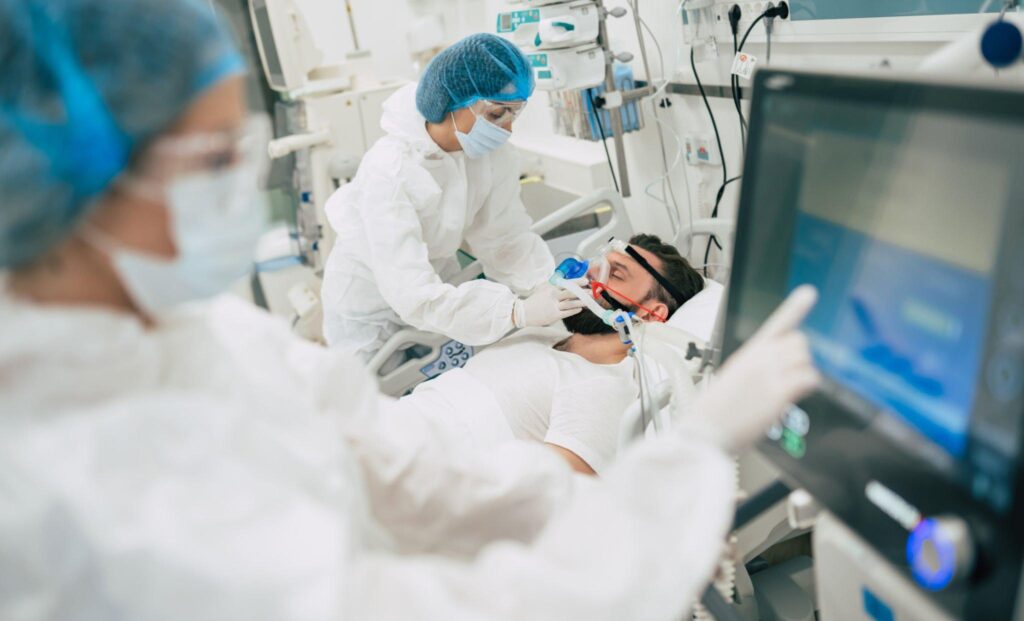EMERGENCY MEDICINE AND ICU FELLOWSHIP COURSE
- Our mission is to provide exposure to a variety of critical care medicine cases through multiple and highly specialized Intensive Care Units.
- Provide them impetus for basic science and research.
- Experiential learning that leads to the growth and development of fellows, who become board certified intensivists and leaders of ICUs throughout the world.
- 2 Months – Internal Medicine Elective
- 2 Months – Emergency
- 2 MONTHS – ICU
- USMLE I & II Optional Training
- MBBS
- Physician MD & DNB
- Family Medicine MD
- The physician must gain experience in the diagnosis and treatment of patients with acute, serious and life threatening medical and surgical diseases
- An intensivist is expected to be equipped with cognitive knowledge and procedural skills when encountered with critically ill-patient.
- The Emergency Medicine fellowship is multi-disciplinary with curriculum consisting of surgical, medical, neurosurgical, burn, and cardiovascular ICUs.
- The main goal of the fellowship program is to create Emergency Physicians with the necessary knowledge regarding every subject, clinical skill and attitude to diagnose acute emergencies and manage according to evidence based medicine.
- Each fellow will be made to contribute to the specialty in a documentable way including:
- Presentations at local, regional, national or international conferences.
- Peer reviewed journal publications
- Peer reviewed online educational or research platforms like Anaesthesia Tool Box and
- Participation in educational activities for the community, medical professionals and patients.
The program’s curriculum is organized to provide increasing levels of responsibility for trainees with respect to patient care and procedure performance which is assessed on the basis of evaluating each fellow’s
- Clinical Judgement
- Clinical skills
- Medical knowledge
- Procedural Skills
- Professionalism and Communication Skills
- Leadership ability and continuing scholarship.
1. Training Schedules
The training programme emphasize on adult critical care. The training shall comprise of rotation as follows:
- ICU (Multispecialty: Surgical/ Medical/ Neuro/ Cardiac)
- Pulmonary Medicine, and Microbiology – (For Anaesthesiologist)
- Anaesthesiology, and Microbiology – (For physicians/Pulmonary Physicians)
- Trauma & Emergency area
- Pediatric and Neonatal ICU
- Dialysis Unit
- Radiology
2. Purpose
This course is aimed at equipping medical graduates, inspired to have a career in Emergency Medicine, to
- Provide knowledge and hands-on experience in pre hospital care, transport, triaging and in hospital care.
- Identify and treat life threatening emergencies
- Develop teaching skills through academic activities and conferences.
- Have an understanding of Disaster Management and Triage
- Develop leadership and administrative skills in managing the department.
- Job opportunities to work as a Registrar/ Consultant in Emergency department.
- Provide opportunities to develop a career abroad.
1. Lectures
Five hours of lecture per week are provided to the physicians during the rotation.
- Lecture topics are published at the beginning of the academic year.
- Attendance is mandatory.
- A case presentation is required of all physicians rotating through the Emergency Medicine rotation.
- Physicians are required to discuss critical care topics with an attending faculty or senior level emergency medicine resident.
- Independent reading is expected. The physician is expected to read from a core emergency medicine text
2. Discussion
3. Student Directed Learning
4. Case Based Learning
5. Role Playing
6. Simulators Based learning
7. Web Based learning
8. Didactic learning (theory lectures, seminar and journal club sessions),
9. Non-didactic/practical/clinical learning - (bed-side, treatment procedure, clinical demonstration, case discussion, laboratory observation sessions).
10. Combined Round/ Grand round
11. Mortality/ Morbidity meetings
12. Quality Assurance meeting
13. Radiology conferences
- Academic and practical training commences in the Critical Care.
- Second month of training, identification of project and synopsis submission for ethics approval.
- Didactic and clinical training within the unit.
- Learning the good clinical practice skills pertaining to the curriculum.
- Team work, bed-side practice, out-patient care understanding by the end of the course.
This program provides the opportunity to learn in various ICU environments which enables the fellow to feel comfortable in any future job prospect.
Our graduates have accepted positions in many different environments and mixes (ICU/EM), academic and community, with the confidence to be medical directors after fellowship.
After assessment shows adequate performance and enough scores by the trainee, subject to which the trainee will receive an accredited certificate that shows he/she is legal to practice independently as a Consultant, Specialist in Emergency Medicine and ICU.


